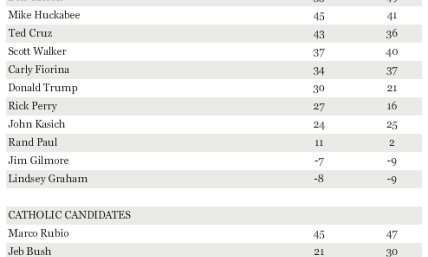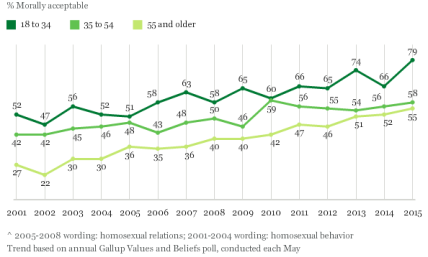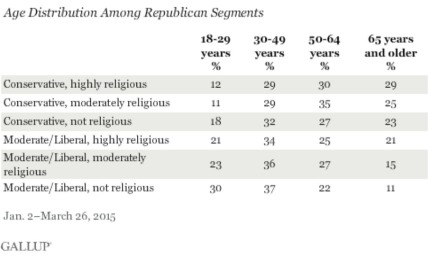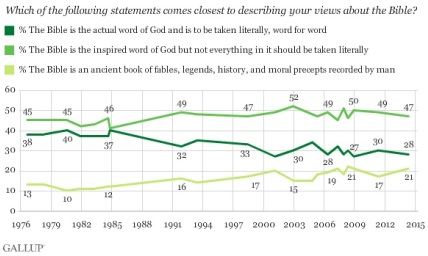Are millennials really 'not going back' to church?
I think the picture is complex, but there are signs that older millennials may in fact, contrary to the headline, be going back to religion.

I think the picture is complex, but there are signs that older millennials may in fact, contrary to the headline, be going back to religion.

Americans who attend religious services weekly are less likely than others to drink alcohol, reflecting the centuries-old connection in American history between religion and the perceived immorality of drinking.

Overall, a review of these attitudes shows that Americans have a general reluctance to accept refugees into the U.S., even in response to situations that are clearly oppressive.

These assumptions about Trump's level of support among evangelicals appear to be based on trial heat polls wherein Republicans are forced to choose one and only one candidate for whom they would, in theory, vote. A better view of Trump's image among this group comes from our Gallup data in which Republicans are asked about their views of each candidate individually.

Norms surrounding behaviors relating to sexual behavior and reproduction have been shifting in the U.S. in recent years. Where once normatively taboo, certain behaviors and lifestyle choices are now much more likely to be normatively sanctioned.

Texas Sen. Ted Cruz chose a conservative, evangelical Christian university as the setting for his announcement that he was running for president. This underscored his apparent strategic decision to focus relentlessly on the conservative, highly religious segment of his party, both in terms of attempting to become their candidate of preference, and also in terms of maximizing their turnout in the 2016 primary elections.

The majority of Americans do not feel that the federal government should take on the role of making sure that all Americans have healthcare coverage.

After returns from Tuesday's midterm elections confirmed that the Republicans will maintain control of the House and take control of the Senate, attention now turns to what actions the new Congress should take. Nearly a third of Americans, 31%, say their newly elected representatives should not focus on a specific issue, but rather on fixing the way Congress operates, including paying more attention to constituents, compromising and getting things done.

What should the role of government be in the arena of race and race relations in the U.S. today? This question has moved into the national conversation again after the recent events in Ferguson, Missouri.

Now that we are firmly ensconced in the summer of 2014, it is a good time to take stock of what was on the American public's mind 10, 20, 30, 40, 50, and 60 years ago -- in the early summer of previous years ending in "4" going back to the Eisenhower days. Some surprisingly interesting and important things were going on in years ending in "4", and public opinion in those years was always revelatory, sometimes surprising.
